Manuka honey, renowned for its unique healing properties, has gained immense popularity in recent years. However, alongside its rise in demand, concerns have been raised about the authenticity of the manuka honey available in the market. Reports suggest that a significant portion of the manuka honey sold worldwide is, in fact, fake. In this article, we delve into the issue of counterfeit manuka honey, explore the reasons behind its prevalence, and provide guidance on how to identify genuine manuka honey.
The Manuka Honey Phenomenon
Manuka honey, derived from the nectar of the manuka tree in New Zealand. Has gained a reputation for its potent antibacterial and medicinal properties. Its unique composition, including high levels of methylglyoxal (MGO), sets it apart from other types of honey. As a result, manuka honey has become highly sought after for its potential health benefits, including wound healing, immune system support, and digestive health.
The Rise Of Counterfeit Manuka Honey
With the increasing global demand for manuka honey, the supply has struggled to keep up. This scarcity, coupled with the high price tag attached to genuine manuka honey, has created a lucrative opportunity for counterfeiters. The production of counterfeit manuka honey involves diluting or adulterating the honey with other substances, such as regular honey or syrup, to mimic the unique characteristics of authentic manuka honey.
Counterfeiters often exploit the complexity of the manuka honey grading system. Which is based on the concentration of MGO and other chemical markers. They may falsely label their products with misleading grading claims or use deceptive packaging to give the impression of authenticity. This makes it challenging for consumers to distinguish genuine manuka honey from the fake.
Spotting The Real Deal
While identifying counterfeit manuka honey can be challenging, there are several indicators that can help consumers make informed choices:
- Look for reputable brands: Purchase manuka honey from well-established brands or reputable suppliers known for their commitment to quality and transparency.
- Check for certifications: Genuine manuka honey is often certified by independent organizations, such as the Unique Manuka Factor (UMF) or the Manuka Honey Association (MHA). Look for these certifications on the label.
- Examine the label: Read the label carefully for accurate and detailed information about the honey’s origin, MGO content, and any additional certifications or quality assurance marks.
- Consider the price: Authentic manuka honey is a premium product and is generally more expensive than regular honey. Suspiciously low prices may indicate a counterfeit product.
- Perform the spoon test: Place a spoonful of honey on a flat surface. Genuine manuka honey will have a thick, slow-moving consistency and will form a firm, dense shape. Counterfeit honey may flow quickly or spread thinly.
The Importance Of Consumer Awareness
The prevalence of fake manuka honey highlights the need for consumer awareness and education. By understanding the risks and taking the necessary precautions, consumers can make informed choices and support genuine producers. It is crucial to support brands and suppliers that prioritize quality, sustainability, and ethical practices.
Furthermore, regulatory bodies and industry associations play a vital role in combating counterfeit manuka honey. Strengthening regulations, increasing testing and certification standards. And implementing stricter penalties for counterfeiters can help protect consumers and the reputation of genuine manuka honey.
Conclusion
While the prevalence of fake manuka honey is a concerning issue, consumers can navigate the market with caution and knowledge. By being vigilant, checking for certifications, and also purchasing from reputable sources, individuals can ensure they are getting the genuine article. Additionally, supporting initiatives that promote transparency and authenticity in the manuka honey industry will contribute to the long-term sustainability and credibility of this remarkable natural product.



